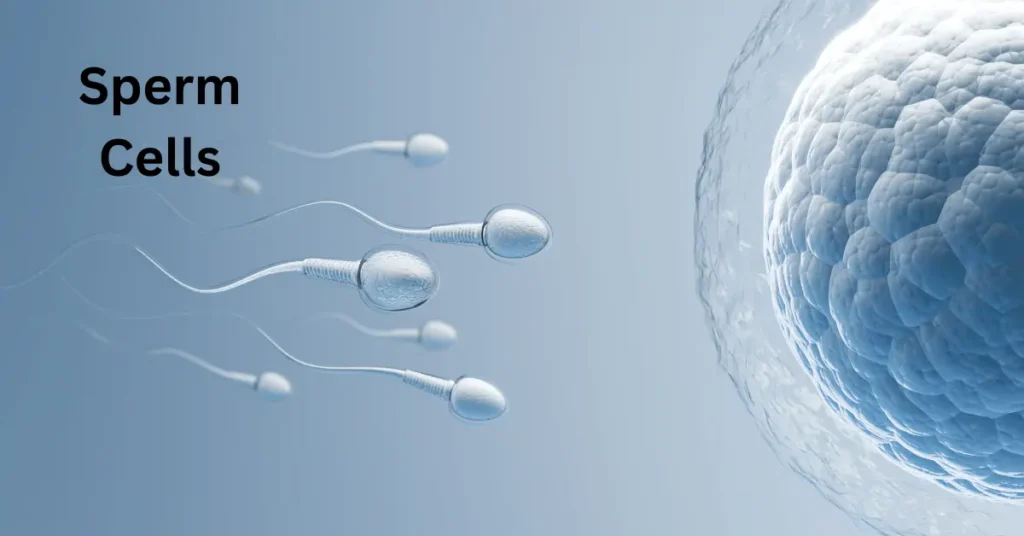Semen Meaning

You’ve probably heard the word “semen” before, but have you ever stopped to think about what Semen meaning in English?
It’s a term commonly discussed in biology, health, and even everyday conversations, but understanding its full meaning can be a bit confusing.
Don’t worry, though! In this article, we’ll break down the exact meaning of “semen meaning in English” in simple, easy-to-understand terms.
Whether you’re curious about its biological role, its history, or just want to clear up any confusion, we’ve got you covered. Let’s dive in!
What Does “Semen” Mean?
In simple terms, semen is the fluid that is released from the male reproductive system during ejaculation.
This fluid is essential for human reproduction because it contains sperm cells, which are the male reproductive cells responsible for fertilizing the female’s egg.
When a male ejaculates, semen is expelled from the body through the penis.
Along with sperm, semen contains various other components produced by different glands in the male reproductive system, such as the prostate gland and seminal vesicles.
These fluids serve several important functions:
- Sperm Cells: The most important part of semen is the sperm cells. These microscopic cells are responsible for fertilizing a woman’s egg during sexual reproduction. They are carried within the semen to reach the egg.
- Nutrients and Protection for Sperm: Semen isn’t just a vehicle for sperm; it also contains fluids that provide nutrition and protection to the sperm cells. For example, the seminal fluid contains sugars, proteins, and enzymes that give sperm energy to swim toward the egg. It also helps protect the sperm from the acidic environment of the female reproductive tract, increasing their chances of fertilization.
- Other Components: Semen also contains various other substances like enzymes, vitamins, and hormones. These work together to support sperm function and improve their chances of successful fertilization.
In short, semen is the fluid containing sperm cells that plays a crucial role in the reproductive process. Its main purpose is to transport sperm, but it also provides nourishment and a protective environment for sperm to thrive in, allowing them to do their job of fertilizing an egg.
Definition of Semen Meaning in English
In English, the term “semen” refers to the thick, whitish fluid released from the male reproductive system during ejaculation.
This fluid contains sperm cells, which are the male gametes responsible for fertilizing a female’s egg during reproduction.
Along with sperm, semen includes a variety of other fluids and substances produced by the male reproductive organs, such as the prostate and seminal vesicles, that work together to support and protect the sperm cells.
More precisely, semen is made up of:
- Sperm cells: These are the reproductive cells that carry genetic material and are needed to fertilize a female’s egg.
- Seminal fluid: This is a mixture of fluids from different glands that nourish and protect the sperm, making it possible for them to survive as they travel through the female reproductive system.
Semen plays a key role in human reproduction and has been studied extensively to understand fertility, health, and genetic material transfer.
Examples of Semen in English
To better understand the term, here are a few examples showing how “semen” is used in everyday language:
- Biological Context: “During ejaculation, semen is released from the male’s body, containing sperm cells that are capable of fertilizing a woman’s egg.”
- Medical Context: “A semen analysis can help doctors assess a man’s fertility by examining sperm count, motility, and quality.”
- General Context: “After the sperm cells are deposited in the female reproductive tract, the semen helps protect and nourish them as they travel to the egg.”
- Fertility Treatment: “In vitro fertilization (IVF) often involves the use of semen samples to facilitate conception in cases of infertility.”
In these examples, the word “semen” is used to explain its role in reproduction, its presence in medical procedures, and its biological function.
These examples highlight the importance of semen in the process of fertilization and reproduction.
Word Origin of “Semen”

The word “semen” comes from the Latin word “semen,” which means “seed.”
In Latin, “semen” referred not only to the male reproductive fluid but also to the idea of “seed” in the broader sense — something that could grow, develop, or generate life.
This connection between semen and “seed” is significant, as in ancient times, people believed that semen was the “seed” from which life originated.
The use of the word “semen” in English dates back to the 14th century, when it was adopted from Latin.
Early English uses of the word retained the broader meaning, referring to both the reproductive fluid and the idea of generating life, similar to how “seed” is used in plant biology.
As scientific understanding of human reproduction developed, the word “semen” became more specifically associated with the male reproductive fluid that contains sperm.
Despite the word’s long history, the core idea of “semen” as something that carries the potential to create new life has remained central in both biological and cultural contexts.
In short, “semen” in English has its roots in Latin and was originally used to represent “seed,” reflecting the idea that it is a vital component in the creation of life.
Over time, its meaning became more focused on the biological fluid involved in reproduction.
FAQs
What is the difference between semen and sperm?
The main difference is that semen refers to the entire fluid that is released during ejaculation, which contains sperm cells. Sperm are the individual cells within the semen that are responsible for fertilizing a woman’s egg. In simple terms, semen is the fluid, and sperm are the reproductive cells inside that fluid.
How much semen is typically released during ejaculation?
On average, a male will release about 2 to 6 milliliters of semen during ejaculation. This can vary based on several factors, including age, health, and how often a person has ejaculated.
Can semen be used for fertility treatments?
Yes, semen can be used in fertility treatments such as artificial insemination (AI) or in vitro fertilization (IVF). In these treatments, semen is often collected, analyzed, and then used to help couples who are struggling with infertility.
Is it possible to have semen without sperm?
Yes, it is possible. Some men may produce semen without sperm cells in it, a condition known as azoospermia. This can be caused by a variety of factors, including medical conditions, genetic factors, or damage to the reproductive organs. In such cases, the semen may still contain the fluids produced by the prostate and seminal vesicles but no sperm cells.
What factors can affect the quality of semen?
Several factors can affect the quality of semen, including age, diet, lifestyle choices (such as smoking, excessive alcohol consumption, or drug use), stress, environmental factors (like exposure to toxins), and overall health. Men experiencing fertility issues may be asked to undergo semen analysis to assess the health of their sperm and semen.
Conclusion
In simple terms, semen is the fluid that the male body produces during ejaculation, and it contains sperm cells that are essential for fertilizing a woman’s egg.
This fluid is crucial for reproduction and carries important nutrients and protection for sperm.
Understanding what “semen” means in English helps clarify its role in human biology and fertility.
Whether you’re learning about it for the first time or just looking to clear up some questions, it’s important to know that semen plays a vital part in the process of life creation.
Extra Points on Semen
- Semen is Produced Continuously: Men produce semen constantly, but it’s only released during ejaculation. The production occurs in the testes and is stored in the epididymis until it’s ready to be released.
- Healthy Lifestyle Supports Semen Quality: Eating a balanced diet, staying active, and avoiding harmful habits like smoking and excessive drinking can improve the quality of semen. A healthy lifestyle boosts sperm count and motility, helping with fertility.
- Semen’s Role Beyond Reproduction: While semen’s primary role is reproduction, it also contains proteins and other substances that help in protecting sperm during its journey through the reproductive system.
- Semen Analysis: Doctors can perform a semen analysis to check the quality and health of sperm. This test is often done when a couple is having trouble conceiving, as it helps identify any issues with sperm count or motility.
- Semen’s Evolutionary Importance: Semen has been important throughout human evolution, ensuring the transfer of genetic material from one generation to the next. Its ability to protect and nourish sperm has been key to successful fertilization